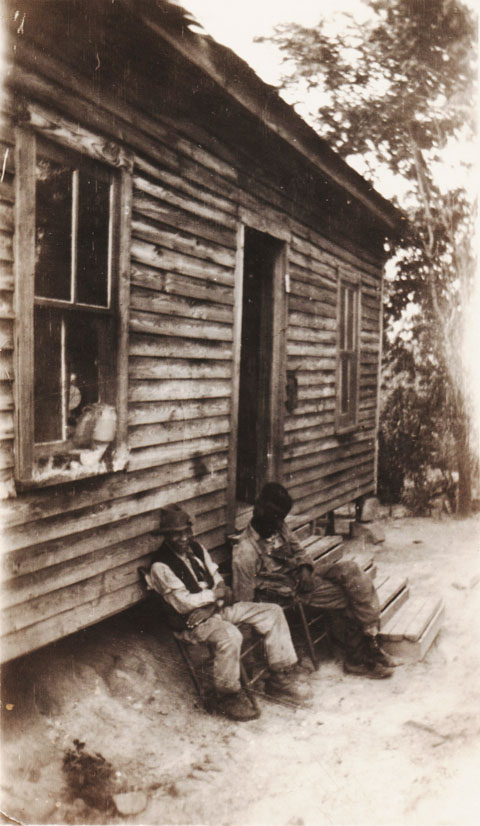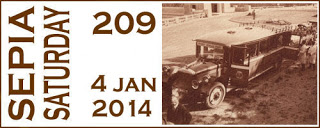I hadn’t planned yesterday to go to Family Search and look for the Will of Alexander Cleage, but I did.
“I give and devise to my beloved wife Jemima Cleage for and during her natural life the following described Negro slaves – to wit: … Juda and her five children to wit: Charles, Angelen, Lewis, Laura and Frank… I also give and bequeath to her for her natural life a negro man called Frank the husband of Juda…”
30th day of May 1860 Alexander Cleage
Juda and Frank Cleage were my two times great grandparents. Their son Lewis Cleage was my great grandfather, my own grandfather Albert B. Cleage’s, father. I have several other documents that trace them through slavery – a letter to the overseer in 1838 and a bill of sale that mention Frank in 1852, a marriage record for Frank and Juda Cleage in 1866 and the 1870 census, Lewis’ death certificate in 1918.
By the time the will was probated 1 March 1875, my people had been free for 10 years.
These records give me a bare bones outline of their lives. I have no photographs, no stories. Nobody’s memories. These bones and their names. I read the will over and over until I felt it inside of me. I saw my cousins faces, my children’s faces. All descended from these two people – Frank and Juda Cleage and their son, Lewis Cleage. I wish I could see their faces. I wish I knew their stories. I wish someone had shared memories. One thing I know is that I will tell the parts of their stories that I can piece together and I will say their names. Frank Cleage born 1816 in North Carolina. Juda Cleage born 1814 in Tennessee. Lewis Cleage born 1852 in Athens Tennessee and died 1918 in Indianapolis, Indiana.
You can see a copy of the will here: Last Will and Testament of Alexander Cleage
You can see a copy of Elijah Hurst’s Will leaving my enslaved great great grandmother Juda Cleage to his daughter, Jemimah Hurst Cleage Elijah Hurst’s Will-1848


Kris,
Again… Amazing!!! What comes over you when you come across such precious information. Wow!
I felt stunned and then I felt a flood of joy that they were free before his will was probated. Like he’d been foiled. Small comfort but…
Thank you for sharing! Your family’s story mirrors that of my enslaved ancestors that I trace back to Bullock County, Alabama via Charleston, SC and Eastern Shore, MD. Like you, I cannot see their faces or tell their stories, but I say their names and pour libations to them and to their (and my) unknown (to me) ancestors. Again, thank you for sharing.
Yes, our stories are all our own and our stories are all the same at the same time.
Great stuff, as always!
More to come!
I know it is hard not to know more. I feel the same way when finding records. But the important thing is that we call their names and tell the parts of the story we do know so that they are not forgotten, and the world knows that they were more than chattel. Thanks for telling your Ancestors’ story, Kristin. Very moving.
That is the only thing to do. Thanks for appreciating my story.
The owning of slaves seems so appalling to me, but it was the way it was back then & there. Thank goodness the family was kept together & not sold apart as sometimes happened. It seems Alexander Cleage had a conscience about that, at least. As you say, too bad you don’t have pictures, but it’s fortunate you have a some information about them at least.
It doesn’t make it any less appalling that that’s the way it was back then. It’s cold comfort that whether my family remained together or were separated depended on Alexander Cleage’s slave holding conscience.
I’m so thrilled about what you found! Let the Documents Speak for them with your added Voice! Yeah for LEWIS! All those states might tell something as well. Look forward to hearing MORE!
True, you seem to be partial to Lewis!
Remembering Frank, Juda and Lewis Cleage.
Ashe.
Wow! Powerful stuff and well told.
Thank you Alex.
I like how you’ve linked this family history to a photo of unknown people. Now they get a recognition too. So many generations get separated by time, events, and geography that we must be grateful when we have names and photos too, even when they don’t really go together.
Yes. I am grateful for every bit of information I can find. Especially from during slavery as it is not often made available online.
I have read many of your posts tracing your family members’ history but this one pulled me up short. Fascinating to read and even more so, as it must have been, to discover.
Yes, to say it pulled me up short is putting it mildly. Very jarring.
A wonderful find and you told the story in such a moving way. It is the first time I have come across a will with this kind of entry and as Alex said, it makes for very powerful reading to realize that people were passed on like chattels.
There are tons of them.
Last night I found the 1844 Will of Alexander’s wife’s father giving Juda to her.
What a find Kristin and how sobering to read the words that your ancestors were ‘bequeathed’. Good to hear of their freedom eventually.
Good to hear that they were free before the will was read.
What a powerful piece! I felt the longing in your soul to know them, to see their faces and to know their full story.
Speak their names <3 Silence <3
Ugh. So stark and chilling, to see the horror of it set down in a legal document. How is it that you have only brought yourself to this document just now? Dd you avoid reading it for that very reason? I feel the reality of your ancestors not in its words, but in the loving research and writing that you do, bringing them almost to life before our eyes. Keep on holding them in your mind’s eye and in your heart.
Josna,
I didn’t know until recently that Familysearch.org had wills on their site. They aren’t indexed though. I also didn’t know that Alexander Cleage was the one that owned my family. A plantation cousin (family off of the same plantation but not blood relatives) told me that the younger brother, David was. I was getting ready to work on a migration story for my Cleage branch when I thought I would look and see if Samuel Cleage’s will was on family search and if it mentioned my family. Samuel was Alexander and David’s father. While looking through the documents, pretty much page by page, I came across Alexander’s Will and started reading it and found my family named and bequeathed. I then looked through other documents I actually had copies of – bills of sale, letters to overseers etc. and found one that I hadn’t noticed before. It was a bill of sale from David Cleage and his Sister Elizabeth, selling several slaves, including my great great grandfather Frank to their brother, Alexander.
I still have not found Samuel’s will but I assume he left Frank to David or Elizabeth and they sold him to Alexander at a later date.
Unfortuantely, I don’t have a ready supply of court records for Athens, TN in the house. If I can’t find them online, I am out of luck at this point. I do hope to make a trip to Athens once I’ve organized all my material and see if I can find more.
I can see that there’s a tremendous amount of work involved in this process of recovery, Kristin. It’s by no means ready to hand and it seems to involve not only serious digging, and systematic thinking but also inspired (and educated) guesswork. Again, a labor of love. How rewarding, though, when you come upon something like this!
That’s right. Not only is it not right here, often I don’t even know it exists. It takes a lot of digging and a lot of help from cousins and others who find/have important material. And then the Ancestors nudge me in certain directions, I’m sure. Why was I even there looking for his will to do a Migration story about my grandfather? I remembered the story I did about Cleage Bricks and the trip down the dirt road with oxen to Athens and that’s what made me go look for a will.
I wonder what stories those unknown men have to share with us
Ahh, Kristin, your voice, your words, your thoughts and deeds become their stories — for you are the extension of their lives. Lovely post. Thank you.
Interesting research. I didn’t know they had things like that on the internet.
They do. You just have to know where to look and dig, dig, dig.
It’s one thing to “sorta know” something and another to see it in writing where it becomes real. Did Juda and Frank and the kids stay with the Cleages even after they were free or move on?
They stayed in Athens TN but not on the Cleage plantation.
Your grandparents, grandparents is not such a long time in the great scheme of history – one feels that one can almost reach out and touch fingers with them. When I look at the lives of my own grandparents grandparents, I see such a change in lifestyle, it brings home the fluidity of history. But when you reach back and tell us about your grandparents grandparents, it does more than that : it shows that some things are so wrong, so unjust, so inhuman to be at the mercy of slow evolution. A very Happy New Year Kristin. From Alan
The more I learn about my Ancestors specific lives, the closer the time seems to get. Happy New Year Alan!
Thank you so much for sharing this story. Your work has created a story of several ancestor’s lives which carries their memories forward, to say hello to all of us, and to receive our good wishes as well as any feelings lingering from the time when people could legally own people. I had ancestors on both sides of that law. The documents are certainly hidden well, and it takes a real Sherlock to find them. Congratulations.
Thank you Barb. One find opens the door to others.
As historians & descendants, our desire is to know more but it’s very hard to be up-close to these records. When the thrill of finding them goes away & the words are not data, but narratives, it’s gut-wrenching. I literally felt the grief & hopelessness inked into the Wingfield plantation ledger pages that I touched. Then anger followed. Bless the Ancestors who had to carry the burden & the descendants called to record the journey. Both are heavy.
Amen.
A powerful evocative post speaking to your loss of their identity yet your ownership of their lives. Beautifully written Kristin.